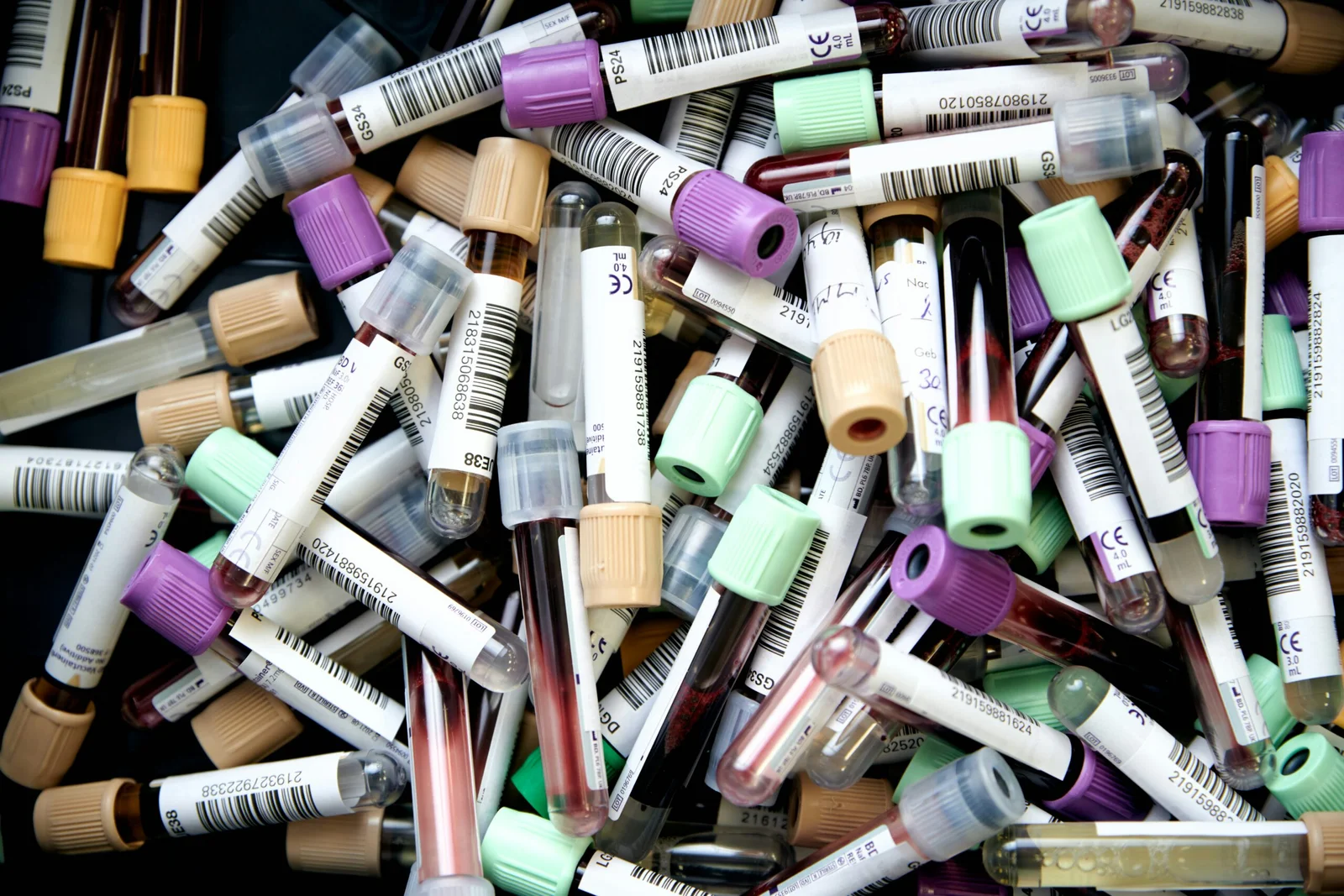middleportal.com – One of the most common methods to determine your blood type is by having a blood test done at a medical laboratory. This involves a healthcare professional drawing a small sample of your blood and sending it to a lab for analysis. The lab technicians will then examine the sample to identify the presence of specific antigens on the surface of your red blood cells. Based on the presence or absence of these antigens, they can determine your blood type.
Another way to know your blood type is through a home blood typing kit. These kits are available for purchase online or at some pharmacies. They typically include a set of reagents and instructions on how to perform the test. With a home blood typing kit, you’ll need to collect a small blood sample using a lancet and mix it with the provided reagents. The reagents will cause a reaction with your blood, allowing you to determine your blood type based on the agglutination pattern.
If you’ve donated blood in the past, you can also contact the blood donation center where you made the donation. They may have your blood type on record, as it is a standard procedure to determine the blood type of donors. However, keep in mind that this method may not be available if you’ve never donated blood before.
In some cases, knowing the blood types of your biological parents can also give you a clue about your own blood type. Blood type is inherited, with certain combinations being more likely than others. For example, if both of your parents have type A blood, it’s highly likely that you also have type A blood. However, this method is not foolproof, as there can be variations in the inheritance patterns.
Knowing your blood type is not only important for medical reasons, but it can also be helpful in certain situations. For example, if you’re planning to have children, knowing your blood type can help you understand the potential risks of blood type incompatibilities with your partner. Additionally, some people believe that certain blood types are associated with specific personality traits or health conditions, although scientific evidence for these claims is limited.
In conclusion, there are several methods available to determine your blood type, ranging from medical tests to home blood typing kits. Regardless of the method you choose, knowing your blood type can provide valuable information about your health and help you make informed decisions in various situations.
1. Ask Your Doctor
One of the easiest ways to determine your blood type is by asking your doctor. Your doctor may have your blood type on record, especially if you have undergone any medical procedures or tests in the past. They can provide you with accurate information regarding your blood type.
When you visit your doctor, you can simply inquire about your blood type during your appointment. They will be able to access your medical records and provide you with the necessary information. It’s important to remember that your doctor is bound by patient confidentiality, so you can trust that your information will be kept private.
Knowing your blood type can be crucial in certain situations. For example, if you ever need a blood transfusion or an organ transplant, your blood type will need to be matched with the donor’s to avoid any complications. Additionally, some medical conditions may require specific blood types for treatment, so having this information readily available can be beneficial.
If you don’t have a regular doctor or have difficulty accessing your medical records, you can consider reaching out to the medical facility where you had previous procedures or tests done. They may be able to provide you with the necessary information or guide you on how to obtain it.
It’s worth noting that while asking your doctor is a reliable method, there are other ways to determine your blood type if you are unable to consult a healthcare professional. These alternative methods include using at-home blood typing kits or donating blood to a blood bank, where they will determine your blood type as part of the donation process.
In conclusion, asking your doctor is an easy and reliable way to determine your blood type. They can access your medical records and provide you with accurate information. Whether you need this information for medical reasons or simply out of curiosity, knowing your blood type can be valuable in various situations.
Knowing your blood type can be beneficial for both your own health and the health of others. Understanding your blood type can provide valuable information about your body’s immune system, potential health risks, and compatibility for organ donation.
One of the key benefits of knowing your blood type is that it allows healthcare professionals to provide you with more tailored medical care. Certain blood types may be more prone to certain diseases or conditions, such as Type O individuals being at a higher risk for developing stomach ulcers. By knowing your blood type, your doctor can take these factors into consideration when diagnosing and treating any health issues you may have.
In addition, knowing your blood type can also be crucial in emergency situations. In cases where you require a blood transfusion due to a severe injury or surgery, having your blood type readily available can speed up the process and ensure that you receive the appropriate blood type. This can be life-saving in critical situations where time is of the essence.
Furthermore, knowing your blood type can also make you an eligible candidate for organ donation. Organ transplants require a close match between the donor and recipient’s blood types to minimize the risk of rejection. By donating blood and discovering your blood type, you may find that you are a potential match for someone in need of a life-saving organ transplant.
Beyond the personal benefits, donating blood is a selfless act that can have a profound impact on the lives of others. Blood transfusions are essential for patients undergoing surgeries, receiving cancer treatments, or suffering from blood disorders. By donating blood, you are directly contributing to the well-being and survival of these individuals.
Moreover, donating blood is a simple and relatively painless process. Blood donation centers ensure a safe and hygienic environment for donors, and the entire process usually takes less than an hour. The blood that you donate goes through a rigorous screening process to ensure its safety and compatibility with the intended recipients.
In conclusion, donating blood not only allows you to contribute to a noble cause but also provides you with valuable information about your own health. Knowing your blood type can help you receive tailored medical care, be prepared for emergencies, and potentially become an organ donor. By donating blood, you are making a significant difference in the lives of those in need, and it is a simple act that anyone can do to help save lives.
3. Use an At-Home Blood Test Kit
If you prefer a more convenient method, you can purchase an at-home blood test kit online. These kits typically come with a needle for pricking your finger and a testing card to determine your blood type. Follow the instructions provided with the kit carefully, and you’ll be able to find out your blood type from the comfort of your own home.
Using an at-home blood test kit can be a convenient option for those who want to determine their blood type without the need for a doctor’s visit or a laboratory test. These kits are easily accessible online and can be delivered right to your doorstep. They usually include all the necessary components, such as a lancet for pricking your finger and a testing card or strip to collect the blood sample.
To use an at-home blood test kit, you first need to thoroughly wash your hands to ensure cleanliness. Then, follow the instructions provided in the kit. Usually, you will be required to prick your finger with the lancet and collect a small drop of blood on the testing card or strip. Make sure to apply enough pressure to get an adequate sample.
Once you have collected the blood sample, you will need to wait for a few minutes for the results to appear. The testing card or strip will have specific markers or indicators that will react with your blood to determine your blood type. It is important to read the instructions carefully to understand how to interpret the results correctly.
Keep in mind that at-home blood test kits may not be as accurate as laboratory tests. While they can provide a general indication of your blood type, they may not detect rare blood types or provide detailed information about other factors, such as Rh factor or antigens. If you need precise and comprehensive information about your blood type, it is advisable to consult a healthcare professional or undergo a laboratory test.
Using an at-home blood test kit can be a convenient and cost-effective option for individuals who are curious about their blood type. It eliminates the need for scheduling appointments, visiting a clinic, or waiting for test results. However, it is important to remember that these kits are not a substitute for professional medical advice, and any concerns or questions regarding your blood type should be discussed with a healthcare provider.
4. Saliva Test
Another option to determine your blood type is through a saliva test. These tests can be found online and typically cost more than traditional at-home blood test kits. With a saliva test, you provide a sample of your saliva, which is then analyzed to determine your blood type. This method may be preferred by those who are uncomfortable with needles.
Blood types are classified into four main types: A, B, AB, and O. Each of these types has different antigens present on the surface of red blood cells:
- Type A: Has A antigens
- Type B: Has B antigens
- Type AB: Has both A and B antigens
- Type O: Has neither A nor B antigens
In addition to the main blood types, blood is further classified based on the presence or absence of the Rh factor. The Rh factor refers to a specific protein found on the surface of red blood cells. If the protein is present, the blood type is considered Rh positive, while its absence indicates Rh negative.
For example, someone with O-negative blood is considered a universal donor because their blood lacks A and B antigens. Therefore, it can be safely transfused to individuals with different blood types. On the other hand, someone with AB-positive blood is considered a universal recipient because they have both A and B antigens, making them compatible with any blood type.
Understanding your blood type is not only important for medical purposes but can also provide insights into your ancestry and genetic traits. If you’re unsure about your blood type, consider using one of the methods mentioned above to find out.
Once you know your blood type, you can take steps to ensure your health and well-being. Certain blood types may be more prone to certain conditions or diseases, so knowing your blood type can help you make informed decisions about your lifestyle and healthcare. For example, individuals with type A blood may have a higher risk of heart disease, while those with type O blood may be more resistant to certain infections.
In addition to medical considerations, understanding your blood type can also provide insights into your ancestry and genetic traits. Blood types are inherited, with certain types being more common in certain populations. For example, type B blood is more prevalent in Asian populations, while type O blood is more common among Native Americans.
Knowing your blood type can also be important in emergency situations. In the event of a medical emergency or accident where you require a blood transfusion, medical professionals will need to know your blood type to ensure compatibility and avoid any adverse reactions. By having this information readily available, you can help medical personnel provide the best possible care in a timely manner.
In conclusion, determining your blood type through a saliva test can be a convenient and non-invasive option. Whether you choose to use a saliva test or another method, understanding your blood type can have important implications for your health, ancestry, and emergency care. Consider exploring your blood type to gain a deeper understanding of your unique biology and make informed decisions about your well-being.












